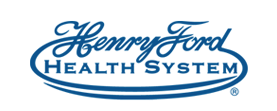Computer-Based Tailored or Standard Information for Colorectal Cancer Screening
| Status: | Recruiting |
|---|---|
| Conditions: | Colorectal Cancer, Cancer |
| Therapuetic Areas: | Oncology |
| Healthy: | No |
| Age Range: | Any |
| Updated: | 11/18/2012 |
| Start Date: | August 2009 |
Evaluating a Preference-tailored Intervention to Increase CRC Screening in Primary Care Settings
RATIONALE: A computer program that provides information on colorectal cancer screening based
on a patient's test preferences may be more effective than a computer program that gives
standard information in helping patients get regular colorectal cancer screenings.
PURPOSE: This randomized clinical trial is studying computer-based tailored information to
see how well it works compared with standard information for colorectal cancer screening.
OBJECTIVES:
- To evaluate the effectiveness of a preference-tailored (PT) intervention vs standard
information (SI) delivered via computer for increasing patients' adherence to
colorectal cancer (CRC)-screening guidelines in a randomized controlled trial in two
racially/ethnically diverse geographic locations.
- To assess the impact of the intervention on patient perceptions of informed-decision
making, physician recommendation for CRC screening, decision conflict and satisfaction,
and intention to get screened 3 days after a primary care visit.
- To conduct a cost-effectiveness analysis of a preference-tailored strategy for
increasing CRC screening utilization.
OUTLINE: This is a multicenter study. Patients are randomized by the computer program to 1
of 3 intervention arms.
- Arm I (preference-tailored intervention): Patients receive overview information about
colorectal cancer (CRC), including graphics and descriptions of the colon and colon
polyps. Patients then complete a preference-assessment exercise test by using a
specially designed website. A brief description of the test is given at this time, and
patients are offered the option to learn more about their preference-matched test.
Patients are then given a list of other available CRC-screening tests with a brief
description and option to learn more about each test. The program informs them when all
information has been viewed. At the time the patients exit the program, or have viewed
all the information available, they are asked to choose which test is preferable to
receive from a list of existing test options.
- Arm II (standard information intervention): Patients receive overview information as in
arm I. The patients then use a website listing of the four existing CRC screening test
options along with graphical representations. They are allowed to interact with this
web page to view basic or more information about any or all of the tests. The program
informs them when all the information has been viewed. At this point, patients are
asked to choose which test they would prefer to receive from a list of existing test
options, as in arm I.
- Arm III (usual care): Patients receive usual care and do not receive any extra
educational materials. Patients may receive a telephone follow up at 12 months.
Upon completion of the intervention, patients in arms I and II receive a printout to take
with them to their upcoming appointment. For those in arm I, this printout will include
their top three attributes, their preference-matched test, and their final test choice. For
those in arm II, this printout will include a list of the four screening tests but will not
list their final test choice.
Patients in arm I and II undergo a 3-day follow-up telephone interview. Medical charts of
all patients in all 3 arms are reviewed at 12 months.
DISEASE CHARACTERISTICS:
- At average risk for colorectal cancer (CRC), defined as the following:
- No personal history of CRC, adenomatous colon polyps, or inflammatory bowel
disease
- No family history of CRC
- Not up-to-date with CRC screening in past year OR have never been screened, defined
as
- Up-to-date screening is defined as having completed 1 of the following:
- Fecal occult blood test within the past 2 years
- Sigmoidoscopy within the past 5 years
- Colonoscopy with the past 10 years
- Double-contrast barium enema within the past 5 years
- Patient at San Francisco Community Health Network or at Henry Ford Health System and
a member of the Health Alliance Plan
PATIENT CHARACTERISTICS:
- Life expectancy ≥ 1 year
- No history of inflammatory bowel disease, polyposis, or hereditary nonpolyposis
- No severe comorbidity or significantly lowered life expectancy, including any of the
following:
- Do not resuscitate (DNR)/do not intubate (DNI) code status
- Metastatic cancer
- End-stage congestive heart failure
- Severe chronic obstructive pulmonary disease
- Coronary artery disease with recent myocardial infarction or unstable angina
- Dementia
PRIOR CONCURRENT THERAPY:
- No prior bowel resection
We found this trial at
3
sites
1600 Divisadero Street
San Francisco, California 94115
San Francisco, California 94115
888.689.8273

UCSF Helen Diller Family Comprehensive Cancer Center UCSF’s long tradition of excellence in cancer research...
Click here to add this to my saved trials
1500 East Medical Center Drive
Ann Arbor, Michigan 48109
Ann Arbor, Michigan 48109
800-865-1125

University of Michigan Comprehensive Cancer Center The U-M Comprehensive Cancer Center's mission is the conquest...
Click here to add this to my saved trials
2799 W Grand Blvd
Detroit, Michigan 48202
Detroit, Michigan 48202
(888) 777-4167

Josephine Ford Cancer Center at Henry Ford Hospital A diagnosis of cancer is one of...
Click here to add this to my saved trials